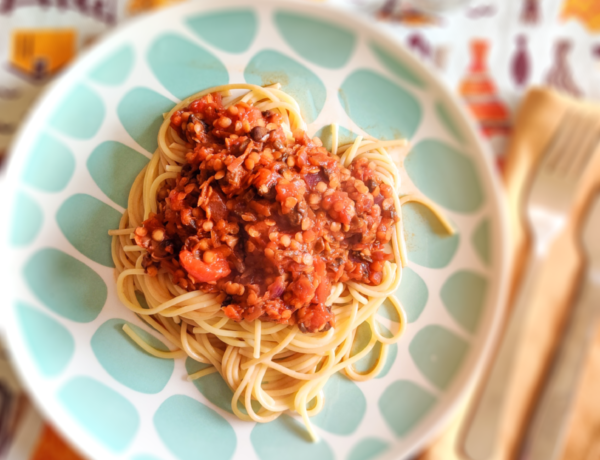We’re in the first month of the year and many people are using this as an opportunity to incorporate healthy habits into their lives like eating healthier. And that is great!
The issue is… eating healthy may sometimes seem complicated, especially when we’re constantly hearing/reading things like:
- “Eat this”
- “Don’t eat that”
- “Do this diet”
- “Count your calories”
- “Count your macros”
- and so on
Trust me, been there, heard that, did that and said that! The truth is… healthy eating is way simpler! It’s just that diet culture doesn’t want you to know it… So, let’s rethink what Eating healthy means.
Eating healthy is…
…eating quality foods that are rich in nutrients.
…eating in a way that doesn’t cause you discomfort (constant hunger, a feeling of restriction, frequent cravings).
…eating in a way that works for you and your needs.
Does this make sense to you? It does? Great! Then keep reading for my 5 tips on how to eat healthy.
Follow an eating style that works for you and your needs
Don’t force yourself to follow the same eating style as your friend or the meal plan you saw in the website X or book Y. The fact that a certain way of eating works to fit someone else’s goals, doesn’t mean it will work for you. You are a unique being and therefore your nutritional needs are also unique. Listen to your body and the signs it sends you.
Do not exclude certain foods or food groups without a specific and solid reason
Some valid reasons to exclude/avoid specific foods are:
- food allergies
- food intolerances
- moral reasons
- or simply not enjoying them
Exclude something from your nutrition just because a friend, work colleague or celebrity told you to do it or because you read somewhere it’s the fastest way to reach a goal (usually that goal is weight loss)… These are not proper reasons. Before doing a drastic change in your eating habits, make sure you get advice from a qualified professional.
Don’t label food as “good” or “bad”
It’s important to remember that food is not your enemy and shouldn’t be labelled as “good” or “bad”. Food is fuel for your body, it plays a vital role in keeping you energised and healthy.
Instead of labelling food as “good” or “bad” try this thought: the food you eat can nourish you with more or less quality but it’s the eating frequency or the quantity you eat that will impact positively or negatively your health. It’s all a matter of balance, there is a place for every food in healthy eating.
Less packaging, more peels
The closer from its natural state, the better the food. Give priority to whole foods and prepare/cook them at home. When talking about fruits and vegetables the preferred order of choosing should be:
- fresh (whenever possible)
- frozen (if fresh is not available or if it’s easier for you to get them)
- canned (this should be the last resource but remember that having canned vegetables is waaaay better than having no vegetables at all)
Another thing you can do is cook extra meals at home and freeze them so you have some available for the busy days. This way, you avoid frozen, pre-packed or pre-cooked meals. AND you save tons of money.
Only take food supplements with a specific and justified reason
Do not take any supplements if you don’t know exactly why you’re doing it and the impact of those in your body.
Always reach out to a qualified professional to provide advice regarding any supplements you may be considering to consume (protein shakes, multivitamins, any kind of supplements). Remember: not every product in the market will be of high-quality.
Make sure you’re well informed, make questions and question again. If you decide to take any supplements, do it in a conscious way. And of course: no supplement can replace the need for a varied and balanced diet and you can’t fix a bad diet with supplements.
I hope you enjoyed these tips and remember to nourish yourself everyday and in every area of your life.



